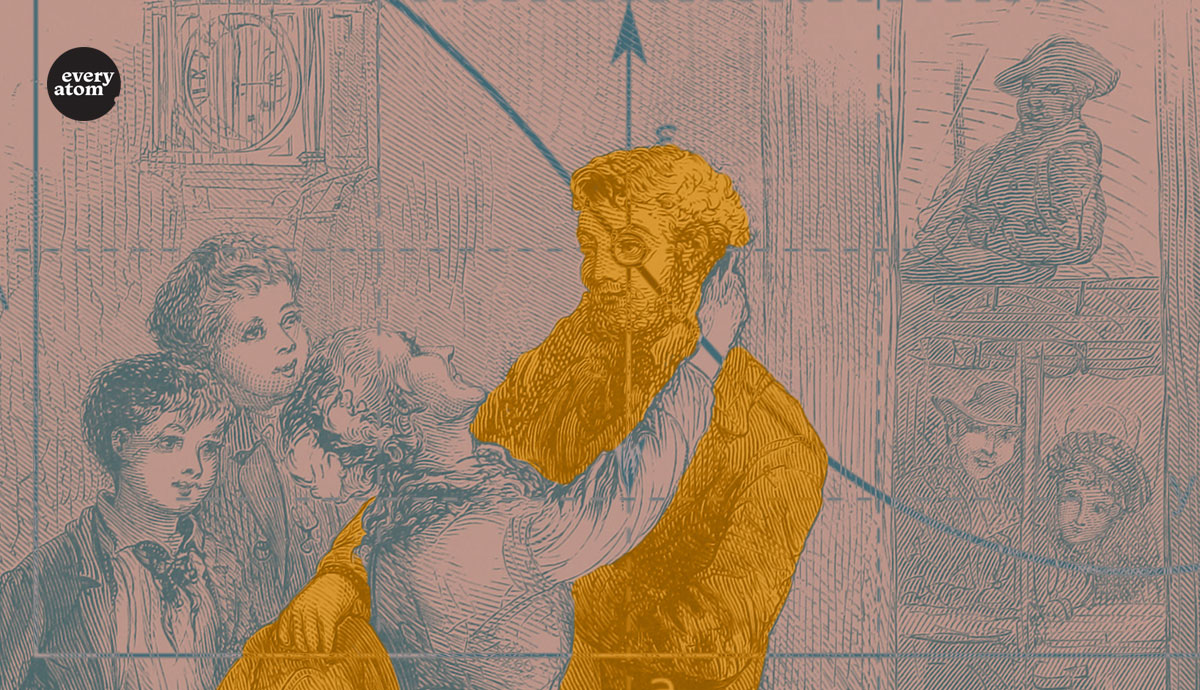Introduction to Every Atom by project curator Brian Clements
Humility doesn’t often come to mind when one thinks of Walt Whitman. After all, scholars have long noted the poet’s sweeping, all-encompassing “I,” and Whitman himself wrote, “I know perfectly well my own egotism.” And how could one possibly associate a poem that begins with the speaker proclaiming, “I celebrate myself” with humility?
The longer I read and teach Whitman’s poetry, however, the more I find myself returning to these early lines in the poem that would later become “Song of Myself.” What have I done my entire career, or for that matter, my entire life, if not “practiced so long to read?” Have I never felt proud of my education, my experience? And what has been the result?
To understand the force of Whitman’s two questions, we have to remember that other crucial pronoun in his verse: “you.” It’s easy to forget the word appears in the second and third lines of his famous poem, and from that moment onward Whitman is forever putting us into relationship with his speaker. And as with any relationship, our response to the poem’s provocations can change over time, shift with our point of view, lift us up or bring us down to earth.
These days when I approach Whitman, I am painfully reminded of my limits. Limits of time—how many class periods can I devote to the poet? How many poems can I assign? Limits of space—how much can I quote in an essay? How do I possibly truncate his lengthy catalogs? Limits of context—where do I draw the line in historicizing the text? How should we approach the poet in the twenty-first century?
And, most pressing of all, limits of understanding. After years of study, can I really claim I have “got at the meaning of poems?”
Perhaps not, but what I have come to appreciate most about Whitman is the same thing that always brings me back to these lines. To read Leaves of Grass is to see a poet trying valiantly to use language to capture the endless variety of not only his own existence, but all of humanity. That he may at times fall short doesn’t make the attempt any less bold or breathtaking.
And there are all those moments when he succeeds: when his poetry evokes something of the wonder of living. Then we come to the realization we may never truly “get at the meaning of poems,” and that our work as scholars, as citizens, as human beings, is never-ending.
Like Whitman, we “tramp a perpetual journey,” and that is truly humbling.




